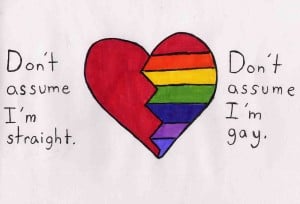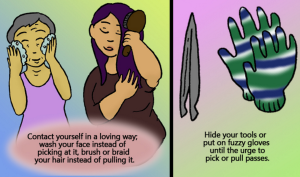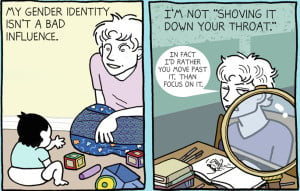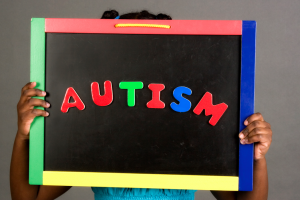Content Warning: Sexual Assault, Violence Against Women

Latinx person smiling at the camera in front of a group of people.
In order to heal our communities from sexual violence, we have to understand its origins.
For the past three years, I have worked as a Crisis Counselor-Advocate at a rape and domestic violence agency in Los Angeles. In my time as an advocate, I have worked one on one with survivors of sexual and domestic violence, the vast majority of whom have been Latinas, other women of color, and youth.
On a regular day, an advocate like me or any of my coworkers might answer crisis calls, provide in-person emergency response to local emergency rooms, SART Centers, courthouses, and police stations to lend support to survivors.
The survivors we work with come from many walks of life — from undocumented mothers to Chicana high school students, undocuqueer Latinxs, to indigenous child sexual abuse survivors and Central American survivors of migratory assault.
It seems there is no Latinx experience completely free from sexual violence.
In this work, I am stuck asking myself: Why do people assault, exploit, and abuse Latinas at such alarming rates? Why do our own people abuse us this way? What are the origins of this violence?
People who sexually assault Latinas are usually acquaintances, partners, and other people we know.
Since attackers usually live in the same community as their victim, addressing sexual violence is a matter of community healing as much as it is about policy and structural change.
As people of Latin American descent, we often discuss the widespread colonial era rape of Indigenous and Black women to understand and contextualize our racial identities.
As a Xicana, I grew up learning about mestizaje and the role that sexual assault played in the colonization of our tierras.
It is important use a critical lens to talk about the legacies of rape and colonialism in our home countries.
Not only do we need to understand the histories of sexual violence in our communities, we have to have real conversations about how our communities have internalized sexual violence, and continue to enact violence against one another.
Understanding the roots of violence is the first step towards healing.
How Does Sexual Violence Impact Latinxs today?
Sexual violence against Latinas often intersects with other forms of violence.
On International Women’s Day, 41 Guatemalan girls were burned to death at a government-run shelter after they disclosed that they had been sexually abused by shelter staff.
Recently, a judge in El Salvador sentenced a teen rape survivor to 30 years in prison for giving birth to a stillborn baby.
It is estimated that nearly 80% of Central American women and girls are sexually assaulted in Mexico on their way to the United States and the US- Mexico border is a place where American Border Patrol agents are known to sexually assault immigrants.
The rape and femicide of Mexican women has become so widespread and brutal that it has been described as a pandemic.
Sexual violence against Latinas doesn’t just happen in Latin American countries. Latinas in the US experience significant rates of sexual violence as well as sexual harassment at school and work.
To get a better idea of why Latinxs experience such prevalent rates of sexual violence today, we must look back to the colonial and precolonial era.
Below are 10 facts exploring the connections between colonization and sexual violence in Latinx communities that help make sense of how we’ve gotten here.
1. The Terms “Rape” and “Colonization” Have Similar Meanings
According to Professor Rita Laura Segato, who has studied gender based and sexual violence against Indigenous and Black women in Brazil the word “rape” has the same etymology as rapiña, meaning predatory behavior in Spanish, and rapaz, or young man in Portuguese.
During the colonial period, conquistadores not only looted, terrorized, and stole from Native people, they also sexually assaulted Indigenous Americans.
2. Native Societies Had Their Own Forms of Patriarchy Before Colonization
Native societies in the Americas had their own forms of patriarchy before colonization, known as low impact patriarchy.
Colonialism imposed European-brand patriarchy as well as European views on gender, race, sex, and religion onto Native people. The result was the development of a type of a more insidious form of Latin American patriarchy known as machismo.
3. Rape and Colonization Are Both About Power and Control
Colonization was the process of taking power and control of land and labor from Indigenous and enslaved African people. Colonizers used rape as a way to take power and control of Indigenous people’s bodies away from them and dominate Native societies.
Damary Rodriguez, a Dominicana advocate, blogger, and Database and Resource Assistant at the National Sexual Violence Resource Center explores this more in depth:
Sexual violence […] was used as way to control people during the colonial period. Sexual violence is now used to control intimate partners. The connection is that sexual violence was used on a grand scale during colonialism and is now being used on more of an interpersonal level.
4. Conquistadores Raped Both Native Land and Native Bodies
During colonial times, the theft and exploitation of Indigenous land was accompanied by widespread assault and forced pregnancy of Indigenous women in the Americas.
Professor Rita Laura Segato explains:
“In the old conventional wars, with conquered territories came the insemination of women’s bodies. Soldiers raped the women of conquered territories as if women’s bodies were extensions of those territories”
5. Widespread Colonial Rape Played a Large Role in Decimating our Native Comunidades and Ancestros
It is estimated that almost 90% of the Native populations in the Americas were completely wiped out only 150 years after Cristobal Colon’s arrived at Hispaniola — the island we now know as Haiti and the Dominican Republic.
Colonizers sexually assaulted large numbers of Native people, often spreading fatal diseases and infections which raised the overall colonial death toll.
6. Racism and Sexism Are Used to Legitimize Colonization and Sexual Violence
European conquistadores often used racism and dehumanization of Indigenous and African people to justify colonization, genocide, land theft, and slavery.
Similarly, contemporary rape culture uses victim-blaming and dehumanization of survivors to justify or excuse rape and other forms of assault and harassment.
Dr. Chiara Sabina, Associate Professor of Women and Gender Studies at the University of Delaware, explains:
“Misrepresentations of natives and victims [were used] to legitimize conquest and violence. Views of inequality sustain[ed] maltreatment.”
7. Sexual Assault Was Used as a Tool to Maintain Power and Control Over Enslaved Africans and Afrodescendientes in Latin America
Latin American nations, much like the United States, were built on centuries of legal slavery. After Native American populations were nearly wiped out, conquistadores looked to the African continent to enslave Africans for forced labor in Latin America.
Black Latin American women were routinely subjected to both enslavement and rape, doubling the impact of the oppression against them as their bodies were exploited for both labor and sex by European slave owners.
8. The Traumatic Effects of Colonization and Sexual Violence Have Long-Lasting Impacts
Trauma has a way of sticking with people and can be passed between generations in a cycle of generational violence.
Colonization was profoundly traumatic on multiple levels and took place over hundreds of years. Native and African ancestors who survived colonialism most likely experienced sustained sexualized and gender-based violence in our Latin American home countries.
The trauma that our ancestors lived through lives on through us. This is known as historical trauma or intergenerational trauma.
9. Latinx people in the US are Often Exposed to Both Latin American and US Forms of Rape Culture
Latin Americans leave home countries, many with high rates of violence against women, and relocate to the United States, which has its own history of sexual violence in policy and society.
Latinx youth are likely exposed twice to Latinx and U.S. forms of rape culture which perpetuates and reinforces sexually violent behavior.
10. Colonial Sexual Violence Influenced Laws and Institutions Which Still Exist And Negatively Impact Latinx Survivors Today
The history of sexual violence against Latin American women can still be felt today in sexist, isolating, and victim blaming laws, policies, and social institutions.
Colonial laws in Latin America made violence against women (including murders of women) a “private matter” which could be legally justified if a husband felt his wife somehow deserved it. Colonial laws also stripped women, especially Black and Indigenous women, of their civil rights to divorce, own property, work, vote, control their own bodies, and decriminalized sexual and domestic violence perpetrated against women.
***
Latin America is not the only region on Earth with a prevalence of sexual and gender based violence and Latinxs are not the only group living with intergenerational and historical trauma.
Sexual violence is a reality for most countries, races, and ethnic groups — though the severity of violence certainly varies from place to place.
Unfortunately, many of our beautiful places of origin in Latin America are also homes to long histories of invasion, violence, pain, and trauma.
The first step towards healing from the intergenerational trauma of colonialism and sexual violence is to learn about it and stay conscious. This way, we can share what we learn with friends and familia, be better advocates for survivors, and do more to bring an end machismo.
[do_widget id=’text-101′]
Mala Muñoz is an Everyday Feminism Reporting Fellow. Mala is a writer, advocate, and crisis counselor from Los Angeles. Her writing has been featured in VIBE Magazine’s online Latinx platform, VIBE Viva and the Huffpost Blog. A third generation Xicana and one half of the podcast Locatora Radio, Mala’s work online and in real life focuses on the creativity, genius, and legacies of women and survivors of color.
Search our 3000+ articles!
Read our articles about:
Our online racial justice training
Used by hundreds of universities, non-profits, and businesses.
Click to learn more




















